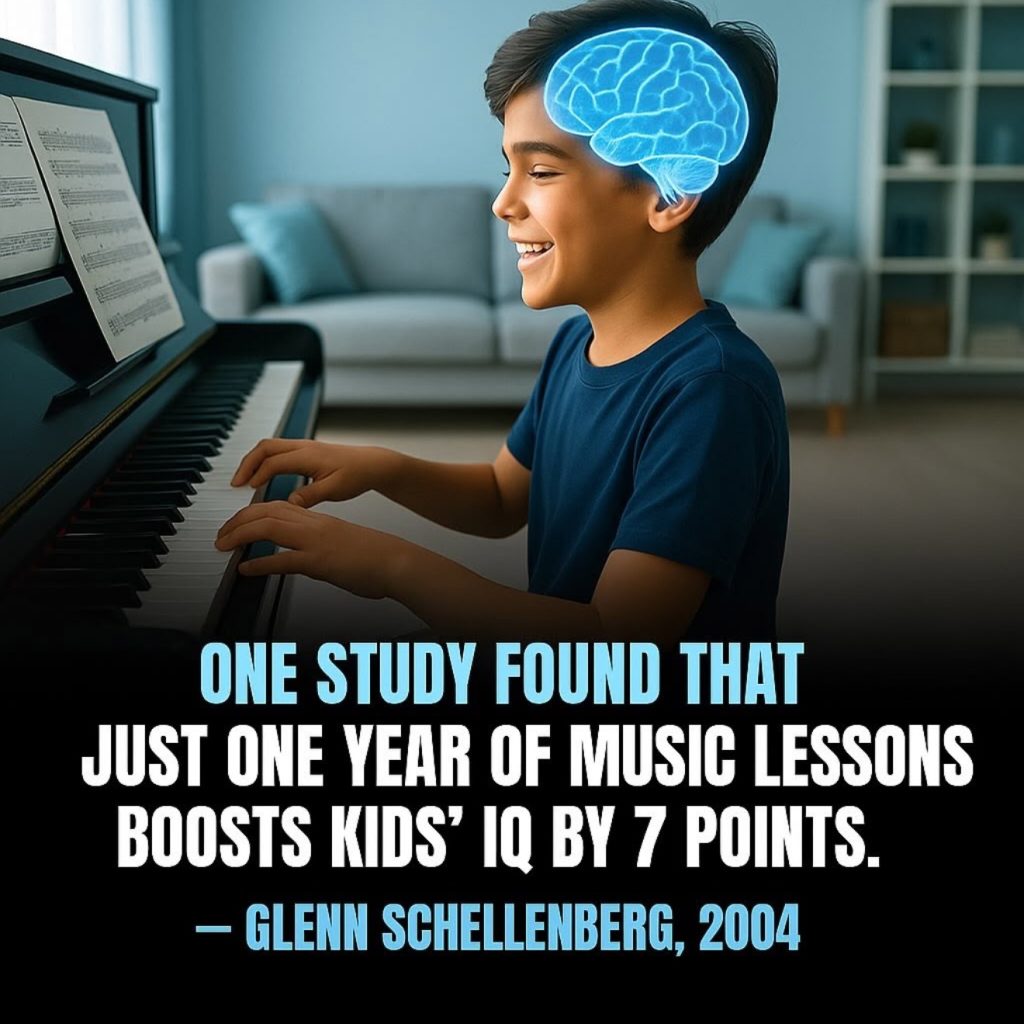
1. USC Dornsife Brain & Creativity Institute – Music Training Enhances Brain Structure & Executive Function
A longitudinal study of children (starting at ages 6–7) in the Youth Orchestra Los Angeles program found that just two years of music instruction led to structural changes in both white and gray matter. Music-trained children showed enhanced connectivity in the corpus callosum and auditory association areas, along with stronger engagement of decision-making and attentional brain networks during executive-function tasks like the Stroop test.
2. Effects of Short-Term Music Training on Executive Control
In this randomized intervention (20 days) involving 4–6 year-olds, children were assigned to music or conversational French training. Both groups improved on executive control tasks, but music training uniquely boosted performance on a go/nogo inhibition task—highlighting that even brief music instruction can yield executivefunction benefits.
3. Longitudinal Study—Musical Practice, Working Memory & Brain Structure
Tracking 352 participants (ages 6–25) across multiple years, this study found that consistent music practice was positively associated with improvements in verbal and visuospatial working memory, processing speed, and reasoning, even after controlling for parental education and other activities. Neuroimaging also revealed increased gray matter in brain regions tied to music notation reading.
4. Early Musical Training and Motor–Sensory Brain Connectivity
Adults who began musical training before age 7 showed stronger connections between motor and sensory brain regions. This suggests that there's a sensitive developmental period (around ages 6–8) when musical training leads to more robust motor planning and sensory integration pathways.
5. Meta-Analysis—Music Training Improves Inhibition Control in Children
A comprehensive meta-analysis of 22 studies (1980–2023; 1,734 children ages 3– 11) revealed a moderate to large effect of music training on inhibition control. Randomized controlled trials (RCTs) showed an average effect size of 0.60. Remarkably, even just 300 minutes of total training (e.g., 5 hours) was sufficient to observe measurable benefits.
| Study Focus | Age Range | Key Outcome |
|---|---|---|
| Brain structure & executive function | ~6–7 years | Structural brain changes + better executive control |
| Short-term executive control training | 4–6 years | Inhibition benefits from brief music training |
| Longitudinal cognitive & brain impact | 6–25 years | Working memory, speed, reasoning improvements |
| Early training & brain connectivity | Before age 7 | Stronger motor–sensory neural connections |
| Meta-analysis—Inhibition control | 3–11 years | Inhibition improvements with minimal training |
